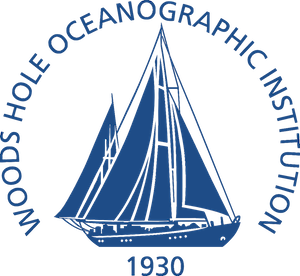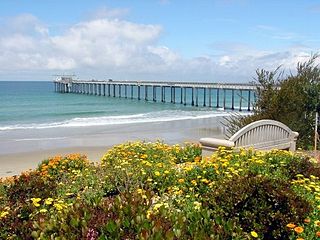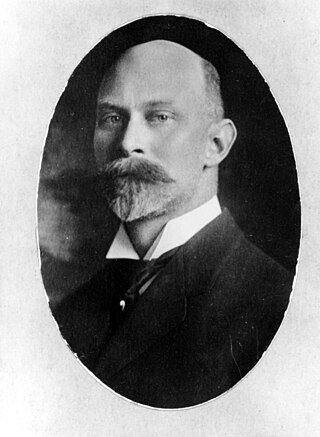Related Research Articles

Harald Ulrik Sverdrup was a Norwegian oceanographer and meteorologist. He served as director of the Scripps Institution of Oceanography and the Norwegian Polar Institute.

The Woods Hole Oceanographic Institution is a private, nonprofit research and higher education facility dedicated to the study of marine science and engineering.

The Scripps Institution of Oceanography (SIO) is the center for oceanography and earth science at the University of California, San Diego. Its main campus is located in La Jolla, with additional facilities in Point Loma.
The Nierenberg Prize for Science in the Public Interest is given annually by the Scripps Institution of Oceanography. It was created through a gift of the family to honor the memory of William Nierenberg. The prize includes a bronze medal and $25,000.
Mark A. Cane is an American climate scientist. He obtained his PhD at MIT in 1975. He is currently the G. Unger Vetlesen Professor of Earth and Climate Sciences at Columbia University and the Lamont Doherty Earth Observatory. He actively pursues several research and teaching initiatives, and supports the Columbia climate kids corner. As of November 11, 2015, his publications have been cited over 22,600 times, and he has an h-index of 75.

Mary Sears was a commander in the United States Naval Reserve and an oceanographer at the Woods Hole Oceanographic Institution (WHOI).

A shifting baseline is a type of change to how a system is measured, usually against previous reference points (baselines), which themselves may represent significant changes from an even earlier state of the system.

Richard Randolph "Randy" Olson is a marine biologist-turned-filmmaker who earned his Ph.D. in Biology from Harvard University (1984) and became a tenured professor of marine biology at the University of New Hampshire (1992) before changing careers by moving to Hollywood and entering film school at the University of Southern California.
Paul Kuykendall Dayton is a biological oceanographer and marine ecologist at the Scripps Institution of Oceanography. Dayton works in benthic ecology, marine conservation, evolution, natural history, and general ecology.
Lynne Talley is a physical oceanographer at Scripps Institution of Oceanography known for her research into the large-scale circulation of water masses in the global ocean.

Jeremy Bradford Cook Jackson is an American ecologist, paleobiologist, and conservationist. He is an emeritus professor at the Scripps Institution of Oceanography, senior scientist emeritus at the Smithsonian Institution, and visiting scientist at the American Museum of Natural History Center for Biodiversity and Conservation. He studies threats and solutions to human impacts on the environment and the ecology and evolution of tropical seas. Jackson has more than 170 scientific publications and 11 books, with nearly 40,000 citations listed on Google Scholar.
Nancy Knowlton is a coral reef biologist and a former Sant Chair for Marine Science at the Smithsonian National Museum of Natural History.
Enric Sala is a former university professor who saw himself writing the obituary of ocean life, and quit academia to become a full-time conservationist as a National Geographic Explorer-in-Residence. Sala’s present goals are to help protect critical marine ecosystems worldwide, and to develop new business models for marine conservation. He also produces documentary films and other media to raise awareness about the importance of a healthy environment, and to inspire country leaders to protect more of the natural world.

Thomas Wayland Vaughan was an American geologist and oceanographer. He worked with the United States Geological Survey and United States National Museum, investigating the geology of the West Indies, Panama Canal Zone, and the eastern coast of North America. In 1924 Vaughan became director of the Scripps Institution of Oceanography and held the post until his retirement in 1936. His research work concentrated on the study of corals and coral reefs, the investigation of larger foraminifera, and oceanography.
Alice Alldredge is an American oceanographer and marine biologist who studies marine snow, carbon cycling, microbes and plankton in the ecology of the ocean. She has been one of the most cited scientific researchers since 2003.
Valerie J. Paul is the Director of the Smithsonian Marine Station at Fort Pierce, in Fort Pierce, FL since 2002 and the Head Scientist of the Chemical Ecology Program. She is interested in marine chemical ecology, and specializes in researching the ecology and chemistry of Cyanobacteria, blue-green algae, blooms. She has been a fellow of the American Association for the Advancement of Science since 1996, and was the chairperson of the Marine Natural Products Gordon Research Conference in 2000.
Lisa A. Levin is a Distinguished Professor of biological oceanography and marine ecology at the Scripps Institution of Oceanography. She holds the Elizabeth Hamman and Morgan Dene Oliver Chair in Marine Biodiversity and Conservation Science. She studies coastal and deep-sea ecosystems and is a Fellow of the American Association for the Advancement of Science.
Julia Kubanek is a Professor in the Schools of Biological Sciences and of Chemistry & Biochemistry in the College of Sciences at the Georgia Institute of Technology. She is also the Vice President for Interdisciplinary Research for Georgia Tech. She is also Co-Director of the Aquatic Chemical Ecology Center and member of the American Association for the Advancement of Science, the American Chemical Society, the Association for the Sciences of Limnology and Oceanography, the International Society of Chemical Ecology, the International Society for the Study of Harmful Algae and the American Association of Underwater Science
Julia Kathleen Baum is a Canadian marine biologist. In 2017, she was named to the Royal Society of Canada's College of New Scholars, Artists, and Scientists. She was awarded a Pew Fellowship in Marine Conservation in 2017 and an EWR Steacie Fellowship in 2018.

Jennifer E. Smith is an American marine ecologist and coral reef expert who works at the Scripps Institution of Oceanography. Her research investigates how physical and biological processes impact the function of marine communities.
References
- 1 2 "Prominent Marine Ecologist to Receive Prestigious Cody Award from Scripps". scripps.ucsd.edu (Press release). Scripps Institution of Oceanography. 2012-05-14. Retrieved 2018-10-03.
- ↑ "Hay, Mark E." Library of Congress Name Authority File. Retrieved 2018-10-03.
- ↑ Walton, Marsha (2014-08-26). "Mark Hay tracks coral health in Fijian waters". American Association for the Advancement of Science. Retrieved 2018-10-03.
- ↑ Webb, Jonathan (2014-08-22). "Stench of decay turns coral away". BBC News. Retrieved 2018-10-03.
- ↑ "Coral Reef Researcher Wins Explorer's Club Honor". Research Horizons. 2015-11-11. Retrieved 2018-10-03.
- ↑ "Mark E. Hay". National Academy of Sciences. Retrieved 2018-10-03.
- ↑ "2022 NAS Election".